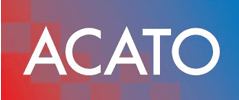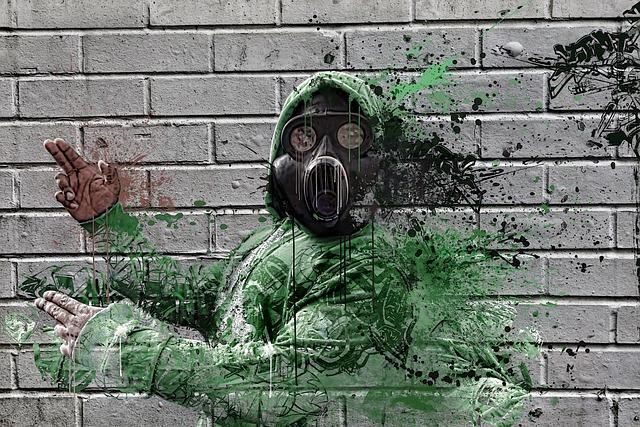Comprehensive Guide to ISO 9001 Costs Around the Globe

ISO 9001 Certification Costs: Global Pricing & Key Factors
Organizations seeking ISO 9001 Certification face significant price fluctuations across borders, with expenses ranging from around $2,500 in emerging markets to well over $100,000 for complex multinational audits. This guide clarifies the core cost components, key influencing factors, regional comparisons, optimization strategies, and common country-specific questions so that quality managers can budget accurately and maximize return on investment. Readers will learn:
- Core certification cost elements and their mechanisms
- How organizational and market characteristics drive price variation
- Comparative cost data for major global regions
- Proven tactics to reduce fees and calculate ROI
- Answers to top inquiries on average costs, hidden charges, and ongoing expenses
By mapping these themes, businesses gain transparent insight into worldwide ISO 9001 pricing and can align certification spend with strategic quality objectives.
What Are the Core Components of ISO 9001 Certification Costs Globally?
ISO 9001 Certification costs consist of four primary elements—certification body fees, consulting services, audit and surveillance charges, and internal implementation expenses—that together determine the total investment required. These components interact to ensure both external compliance verification and internal readiness.
Before examining each element, organizations can consult this detailed breakdown of ISO 9001 costs for additional context on how company size, location, and scope shape pricing.
9000 Store, ISO 9001 Cost, Tech Quality Pedia, ISO 9001 Certification, ISO 9001 Certification Cost, ISO 9001 Certification Cost, ISO 9001 Certification Cost
ISO 9001 Certification Cost Components
The total cost of ISO 9001 certification is composed of several elements, including certification body fees, consulting services, audit and surveillance charges, and internal implementation expenses. These components contribute to the overall investment required for achieving and maintaining certification.
How Do Certification Body Fees Impact ISO 9001 Costs Worldwide?
Certification body fees cover the audit team’s time, report preparation, and certificate issuance.
- Accreditation level and regional recognition influence hourly auditor rates.
- Scope of certification—single site versus multi-site—directly affects days required on-site.
- Travel and subsistence costs for auditors vary with local market conditions.
Certification body fees represent a predictable baseline that helps firms compare offers and negotiate bundled audit packages for better value.
What Are Typical Consulting Fees for ISO 9001 Certification by Region?

External consulting accelerates QMS implementation and pre-audit readiness:
| Region | Consulting Fee Range | Typical Scope |
|---|---|---|
| North America | $150–$300 per hour | Gap analysis, procedure drafting, training |
| Europe | €100–€250 per hour | Policy development, internal audit support |
| Asia | $50–$150 per hour | QMS workshops, document control systems |
| Oceania | AUD 120–AUD 280 per hour | Integrated management systems guidance |
How Do Audit and Surveillance Fees Vary Internationally?
Initial certification audits typically incur higher daily rates than annual surveillance visits.
- First-time audits involve two-stage assessments, longer onsite durations, and system reviews.
- Surveillance audits focus on compliance checks and corrective-action validation at reduced daily fees.
- Recertification every three years often mirrors initial audit pricing but may qualify for loyalty discounts.
This distinction underscores the importance of planning for ongoing audit cycles rather than a one-off expense.
What Internal Implementation Costs Should Organizations Expect?
Building or enhancing an internal Quality Management System requires investment in:
- Employee training programs and certification workshops.
- Process mapping, document control tools, and software licenses.
- Management review meetings and dedicated QMS coordinators.
Which Factors Affect ISO 9001 Certification Costs Across Different Countries?
Certification prices fluctuate globally due to a range of organizational, industrial, and market-level variables that shape audit complexity and service pricing.
British Assessment Bureau, 9000 Store, BPR Hub, Amtivo, Citation ISO Certification, QMII, IAS USA, Core Business Solutions, ISO Certification, Certex International, Bellie & Roaster, Analyzing the Costs & Potential ROI of ISO 9001 Certification, Qualio, The Center, Investing in a Quality Management System, ISO Certification, The ISO Council, The Ultimate Guide to ISO 9001 Certification in Australia: Cost, Process and Benefits, Sustainable Certification, Advisera, How Much Does the ISO 9001 Certification Cost in Australia?
ISO 9001 Certification Cost Factors
The cost of ISO 9001 certification varies based on several factors, including company size, complexity, number of employees, industry, and geographical location. These factors influence the audit duration, the need for specialized expertise, and the overall resources required for certification.
Understanding these factors is crucial for businesses to accurately budget and plan for the certification process.
How Does Company Size and Complexity Influence Certification Expenses?
Larger organizations with multiple departments and sites require:
- Extended audit time for each location, increasing total auditor days.
- Customized sampling plans and cross-site consistency checks.
- Additional project management overhead from certification bodies.
What Role Does Industry Type Play in ISO 9001 Cost Variations?
High-risk or highly regulated sectors such as aerospace, medical devices, and automotive entail:
- Specialized auditor expertise and sector-specific checklists.
- Increased documentation and traceability requirements.
- Longer process reviews to verify compliance with supplementary standards.
By contrast, service industries may incur lower audit complexity and shorter onsite durations.
How Does Existing QMS Maturity Affect Certification Pricing?
Organizations with established management systems generally benefit from:
- Reduced gap analysis effort and fewer auditor-identified nonconformities.
- Streamlined documentation review and limited corrective-action follow-up.
- Potential for combined audits under integrated schemes, lowering per-audit fees.
Higher QMS maturity leads to cost efficiencies and faster certification timelines.
In What Ways Do Geographical Location and Local Market Conditions Impact Costs?
Different economies and market rates drive travel, labor, and overhead fees across regions:
| Region | Key Cost Driver | Impact |
|---|---|---|
| Western Europe | Auditor day rates | 20–30% above global average |
| Southeast Asia | Local consultancy supply | 30–50% below Western consultant fees |
| Middle East | Travel and logistics | Up to 25% surcharge for remote locations |
| Latin America | Currency exchange rates | Variable audit quotes tied to USD strength |
How Do ISO 9001 Certification Costs Compare Across Major Global Regions?

Regional cost benchmarks allow organizations to anticipate investment and tailor vendor selection to market realities.
| Region | Average Certification Cost | Notes |
|---|---|---|
| North America | US $10,000–$50,000 | Higher consultancy and audit rates |
| Europe | €8,000–€40,000 | Accredited bodies compete on scope |
| Asia | US $3,000–$20,000 | Competitive local adviser network |
| Oceania | AUD 12,000–AUD 60,000 | Premium for remote island audits |
| Developing Economies | US $2,500–$15,000 | Lower labor costs, variable quality |
What Are Typical ISO 9001 Costs in North America (USA, Canada, Mexico)?
North American fees reflect higher living costs and stringent auditor qualifications, often leading to consultancy-led turnkey projects.
How Do Certification Fees Differ in Europe (UK, Germany, France)?
European pricing is shaped by strong accreditation frameworks and competitive tendering among national bodies, which can lower overheads for multi-site scopes.
What Are the Cost Trends for ISO 9001 Certification in Asia (India, China, Japan)?
Rapid growth in certification demand has expanded local consulting pools, driving down per-hour rates while audit bodies maintain global quality standards.
How Much Does ISO 9001 Certification Cost in Oceania (Australia, New Zealand)?
Remote locations incur higher travel allowances for international auditors, but local firms offer bundled services that include training and post-certification support.
What Are the Certification Cost Challenges in Developing Economies?
Organizations often face limited local auditor supply, currency volatility, and inconsistent accreditation oversight, necessitating robust vendor vetting and contingency budgeting.
What Strategies Can Organizations Use to Optimize and Reduce ISO 9001 Certification Costs Worldwide?
By adopting proactive measures, businesses can streamline expenses without compromising audit rigor or system integrity.
How Can Businesses Avoid Hidden Fees in International Certification?
Maintain transparent scope definitions, verify travel policies, and confirm currency exchange terms before engagement to prevent surprise surcharges.
What Are Effective Approaches to Lower Consulting and Audit Expenses?
- Bundle audit and consultancy under single contracts for volume discounts.
- Train internal auditors to reduce external surveillance days.
- Leverage integrated management system audits to combine ISO 9001 with related standards.
These tactics can drive down per-day rates and improve internal QMS sustainability.
How Is the Return on Investment (ROI) Calculated for ISO 9001 Certification Globally?
- Measure cost savings from process improvements and waste reduction.
- Quantify revenue gains through new market access and customer confidence.
- Compare net benefits against total certification and implementation spend.
Certex International, Bellie & Roaster, Analyzing the Costs & Potential ROI of ISO 9001 Certification, Apliso Plus, ISO 9001: Cost or Investment? The Real ROI, ISO 9001 Certification: The ROI of a Quality Management System
ISO 9001 Certification ROI
ISO 9001 certification can provide a strong return on investment (ROI) by improving operational efficiency, customer satisfaction, and market access. The benefits often include reduced costs, increased revenue, and enhanced brand reputation.
A robust ROI model ensures ISO 9001 payback is tracked and communicated to stakeholders.
What Are the Common Questions About ISO 9001 Certification Costs by Country?
Industry leaders frequently inquire about pricing norms, regional disparities, and ongoing cost commitments when planning global certification.
How Much Does ISO 9001 Certification Cost on Average?
On average, organizations invest between US $8,000 and US $30,000, depending on size, scope, and geographic location.
Why Do Certification Prices Vary Between Countries and Regions?
Prices differ due to local auditor rates, regulatory complexity, accreditation body fees, and market competition for consulting services.
What Are the Typical Costs for Small Businesses Seeking ISO 9001?
Small enterprises often pay US $3,000–US $10,000, reflecting simpler QMS scopes and shorter audit durations.
BPR Hub, Amtivo, What Does ISO Certification Cost?, Investing in a Quality Management System, 9001 Cost, How Much Does ISO 9001 Certification Cost For Businesses?, How much does ISO certification cost in Australia?, Sustainable Certification
ISO 9001 Certification Costs for Small Businesses
Small businesses can expect to pay between $3,000 and $10,000 for ISO 9001 certification, depending on factors like business size and complexity. These costs typically cover certification body fees, potential consulting fees, and internal implementation expenses.
The costs can vary based on the scope of the QMS and the need for external support.
Are There Ongoing Costs After Initial Certification?
Yes, annual surveillance audits and tri-annual recertification cycles incur recurring fees that sustain compliance and certificate validity.
Building a clear picture of global ISO 9001 certification costs empowers quality managers to allocate resources effectively and achieve lasting value from their Quality Management System investments. By understanding component fees, regional trends, and cost-saving tactics, organizations can pursue certification confidently and realize both compliance and competitive benefits.

